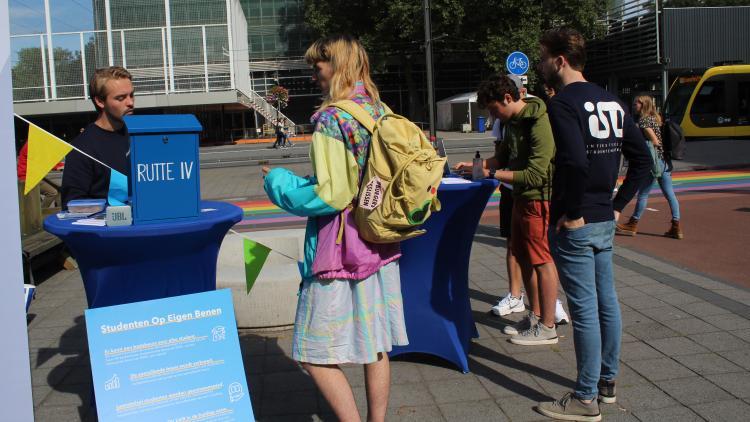Disappointed
Additional allowance nothing more than a sop, says student union

Last week, the public broadcaster NOS reported that the Dutch Cabinet is planning on increasing the basic allowance by 165 euros for higher education students who have moved out of their parents' homes. They will do so for a year.
“We need a much bigger investment”, LSVb chair Joram van Velzen says in response to the news. He mentions a recent report from the National Institute for Budget Information (Nibud), an independent knowledge centre in the field of household finance, stating that even people earning 50 percent more than the most common income level (which corresponds to 79 percent of the average income or a gross yearly income of 38,000 euros in 2022, including vacation allowance) will struggle to pay their bills. "This means students will be hit even harder by the inflation and increases in energy prices.”
Far too late
According to Van Velzen, students need much more support. “This allowance won’t benefit students until the next academic year, which is far too late. Students are already telling us they can’t make rent or pay their energy bills.”
But students are not the only ones calling the National Student Union to talk about their worries. Parents are doing it too. “People often think that, if students can't pay their bills, their parents can jump to the rescue. But that's not always the case. Many can no longer cover the gaps we’re starting to see.”
Too low
Regardless of the additional allowance, Van Velzen also believes that the basic student grant itself, which will make a comeback in 2023, is too low. “Even before the current price hikes, the youth platform of the Social and Economic Council had calculated that a student living away from the parents' home should receive a minimum grant of 421 euros. Given the current situation, we should really be talking about much higher amounts.”
Van Velzen would like to see plans that will effectively help the current generation of students. “Students should be able to apply for an energy allowance in all municipalities and the government should guarantee that the interest rates on student debt won’t rise any further”, he continues. Interest rates are indeed rising, but it may be five years before students actually have to start paying higher rates.
Poorly substantiated
LSVb is not alone in its criticism of the cabinet’s plans. FNV Young & United, the youth branch of the Netherlands Trade Union Confederation, also feels that the government is not supporting students enough, referring to an advisory report recently submitted to the cabinet by the Council of State, in which the council writes that the government should better substantiate how the new system of student loans and grants can be financed in the long term.